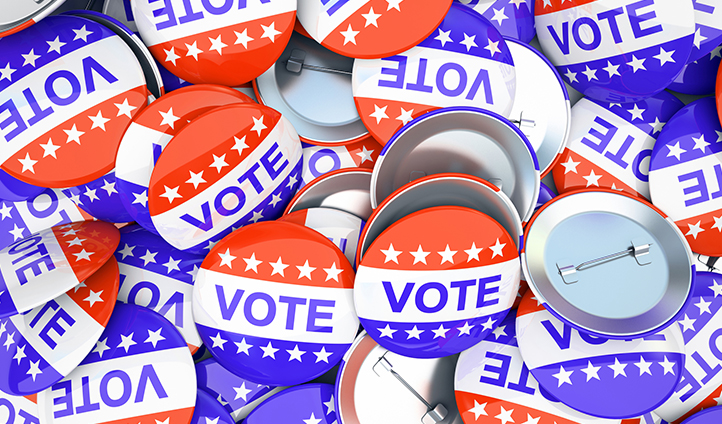Political Speech Under Burson v Freeman
Historical
In Burson v Freeman, 504 U.S. 191 (1992), the U.S. Supreme Court held that a provision of the Tennessee Code, which prohibits the solicitation of votes and the display or distribution of campaign materials within 100 feet of the entrance to a polling place, did not violate the First Amendment.
Facts of Burson v Freeman
Mary Freeman, while serving as the treasurer for a political campaign in Tennessee, filed an action in the Chancery Court, alleging that §2-7-111(b) of the Tennessee Code limited her ability to communicate with voters in violation of the First and Fourteenth Amendments. The Tennessee law stated in pertinent part:
Within the appropriate boundary as established in subsection (a) [100 feet from the entrances], and the building in which the polling place is located, the display of campaign posters, signs or other campaign materials, distribution of campaign materials, and solicitation of votes for or against any person or political party or position.
The court dismissed Freeman’s suit, but the State Supreme Court reversed. It held that the State had a compelling interest in banning such activities within the polling place itself but not on the premises around the polling place. Thus, it concluded, the 100-foot limit was not narrowly tailored to protect and was not the least restrictive means to serve, the State’s interests.
Majority Decision in Burson v Freeman
By a vote of 5-3, the Supreme Court reversed. It held that that §2-7-111(b) does not violate the First Amendment.Justice Harry Blackmun wrote on behalf of the majority.
As explained by the Court, as a facially content-based restriction on political speech in a public forum, § 2-7-111(b) must be subjected to exacting scrutiny. Thus, the State must show that the “regulation is necessary to serve a compelling state interest and that it is narrowly drawn to achieve that end.”
Tennessee asserted that its campaign-free zone serves two compelling interests, both of which the majority found compelling. First, the State argued that its regulation serves its compelling interest in protecting the right of its citizens to vote freely for the candidates of their choice. Second, Tennessee argued that its restriction protects the right to vote in an election conducted with integrity and reliability.
“We simply do not view the question of whether the 100-foot boundary line could be somewhat tighter as a question of constitutional dimension…The state of Tennessee has decided that these last 15 seconds before its citizens enter the polling place should be their own, as free from interference as possible,” Justice Blackmun wrote. “We do not find that this is an unconstitutional choice.”
Dissent in Burson v Freeman
Justice John Paul Stevens authored a dissent, which was joined by Justices Sandra Day O’Connor and David H. Souter. The dissenters argued that the state had not demonstrated a compelling reason to restrict free speech in the 100-ft radius.
Previous Articles
Supreme Court Rejects Mexico’s Suit Against U.S. Gun Manufacturers
by DONALD SCARINCI on July 8, 2025
In Smith & Wesson Brands v. Estados Unidos Mexicanos, 605 U.S. ____ (2025), the U.S. Supreme Co...
SCOTUS Sides With Employee in Reverse Discrimination Case
by DONALD SCARINCI on July 2, 2025
In Ames v. Ohio Department of Youth Services, 605 U.S. ____ (2025), the U.S. Supreme Court held tha...
Supreme Court Rejects Moment of Threat Doctrine in Deadly Force Case
by DONALD SCARINCI on June 30, 2025
In Barnes v. Felix, 605 U.S. ____ (2025), the U.S. Supreme Court rejected the Fifth Circuit Court o...
The Amendments
-
Amendment1
- Establishment ClauseFree Exercise Clause
- Freedom of Speech
- Freedoms of Press
- Freedom of Assembly, and Petitition
-
Amendment2
- The Right to Bear Arms
-
Amendment4
- Unreasonable Searches and Seizures
-
Amendment5
- Due Process
- Eminent Domain
- Rights of Criminal Defendants
Preamble to the Bill of Rights
Congress of the United States begun and held at the City of New-York, on Wednesday the fourth of March, one thousand seven hundred and eighty nine.
THE Conventions of a number of the States, having at the time of their adopting the Constitution, expressed a desire, in order to prevent misconstruction or abuse of its powers, that further declaratory and restrictive clauses should be added: And as extending the ground of public confidence in the Government, will best ensure the beneficent ends of its institution.





